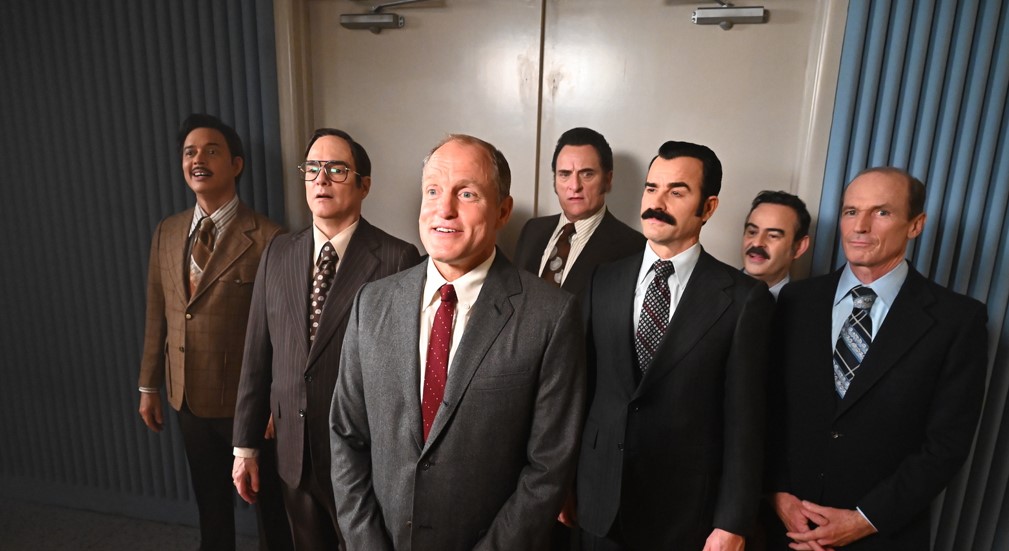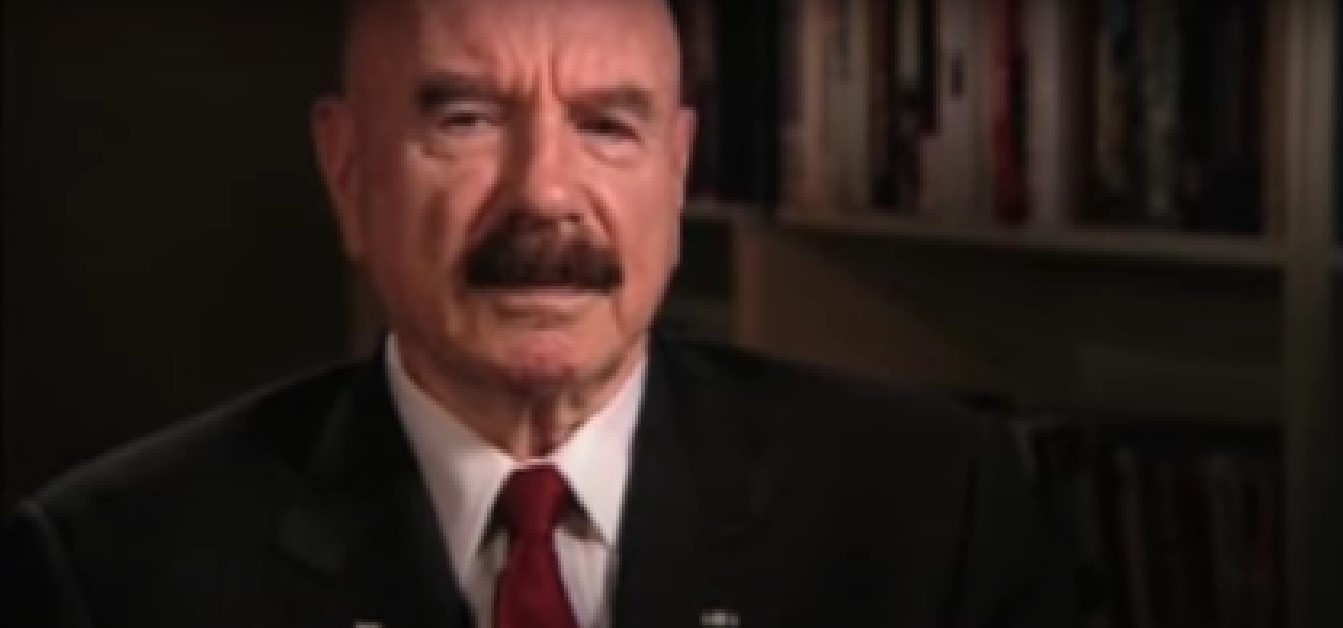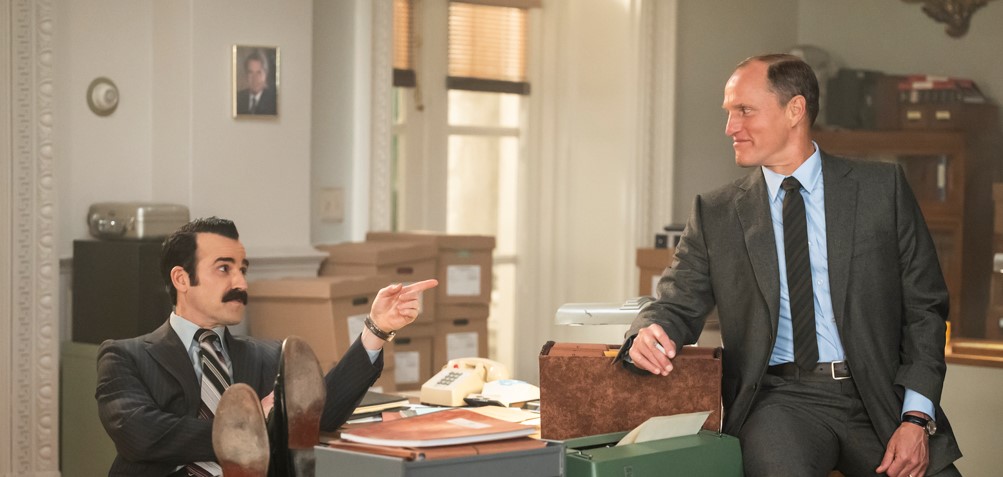HBO’s ‘White House Plumbers’ tells the story of E. Howard Hunt (Woody Harrelson) and G. Gordon Liddy (Justin Theroux), the two central figures in the Watergate Scandal. The series explores the family lives, political views, and personal beliefs of two people who were ultimately foot soldiers in the world’s most powerful man’s war against his political opponents. Among all the Watergate conspirators, Liddy is an odd figure. Unlike the others, Liddy refused to testify to implicate the higher-ups during the Watergate trial.
In ‘White House Plumbers,’ Liddy is depicted to have an unsettling fascination with Adolf Hitler and Nazi Germany. When Howard and his wife Dorothy come to his home for dinner, he plays the recording of one of Hitler’s speeches after learning that Dorothy was a spy during the war and was involved in the recovery of the artworks stolen by the Nazis.
Liddy’s Fascination with Hitler and Nazi Germany
Yes, despite how bizarre it sounds, Liddy’s interest in Hitler and Nazi Germany was quite real. The series faithfully adapts various things he himself said in different interviews. Born November 30, 1930, in Brooklyn, Liddy grew up in Hoboken, New Jersey, a town with a considerable German immigrant population in the 1930s, many of whom were admirers of Hitler, including Liddy’s nanny. According to Liddy, he was a sickly child with asthma. He was allegedly forced to salute the American flag Nazi-style by the nuns at his school.
In a 2004 interview with The Independent, Liddy revealed even as an adult, “at assemblies where the national anthem is played, I must suppress the urge to snap out my right arm.” His nanny taught him that Hitler pulled Germany out of poverty, making him believe he could also overcome his health problems. Listening to Hitler on the radio, he felt “strength inside I had never known before,” he stated. “Hitler’s sheer animal confidence and power of will [entranced me]. He sent an electric current through my body.”

Just as the series indicates, the Hindenberg airship, which used to fly over New Jersey during this period, had become part of something like a religious wonder for a young Liddy. “Ecstatic, I drank in its colossal power and felt myself grow,” he said. “Fear evaporated and in its place came a sense of personal might and power.” Even though Liddy regarded Hitler’s actions toward the Jewish population of Europe as evil, it didn’t prevent him from admiring the Nazi leader. He claimed that his childhood exposure to the information and things related to the man was responsible for it.
Although Liddy tried to paint himself as not a racist during the interview, he married his wife, Frances Purcell, because she was “tall, fair, powerfully built Teuton.” Asked if he believed that wasn’t racist, Liddy claimed genetics was accepted by everyone, adding, “That’s how we spoke then. This is political correctness.” In classic Roman literature, the term “Teutonic” refers to an ancient Northern European tribe. Julius Caesar called them the “Germanic people,” a phrase he used to speak about the tribes living east of the Rhine, and that definition was maintained by authors that came after him.

Considering the above-mentioned facts, we infer that reasoning is dubious at best, as Teutonic can be regarded as another word for Aryan. Liddy ensured that his children saw the Nazi propaganda film ‘The Triumph of the Will.’ In his writings, he often discussed the importance of willpower, drawing directly from the works of Friedrich Nietzsche. Many in the Nixon administration knew him as the man who put his hand over a burning candle to show the power of his will.
In the same interview, Liddy expressed his admiration for the Waffen SS and attributed the success of France in Vietnam to them, claiming that the Waffen SS soldiers served in the French Foreign Legion during this period. According to Liddy, the failure of the US in Vietnam was the result of its lack of willingness to do everything that was necessary for victory.

